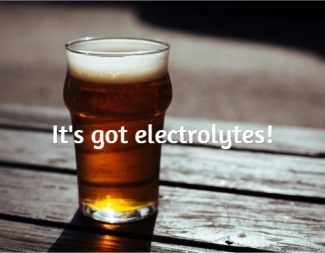Getting you to remember their product’s name may not be an advertisers main goal. They may instead, be using a technique that involves hypnosis and advertising.

I hear it all the time. “That commercial was funny, but I don’t even remember what their product was. That’s a waste of their ad spend.” But guess what? They may not be solely after name or brand recognition. They’re after something more powerful, more subtle, and in some ways, more insidious.
They want you to feel a certain way, and not necessarily even be conscious of where that feeling comes from.
I Got Schooled
When I went to a high school reunion, I noticed something interesting. I didn’t remember everybody. But I did often, sort of remember. When someone introduced themselves to me, I would get two things — a feeling, and a remembered image of their silhouette. Mind you, these things were happening out of consciousness. In other words, I wasn’t aware of them until I sat down and paid attention to it.
So, someone would approach me and say, “Hey Keith, it’s John Smith.” I might have no conscious idea of who that person was. But I would shake their hand and we’d start talking about ‘the good ol’ days’. Later, when I examined my thought process, I realized that when they said their names and I saw them, I saw a silhouette – an outline of what they used to look like, and I felt warmly, neutrally, or had a feeling of dislike.
Consciously, I was wondering who they might be and thinking, “John seems like a nice guy”, if I felt the warm feelings.
In other words, I had feelings of like — or dislike, but I had no idea where they came from.
Anchoring, Hypnosis And Advertising
Well, they came from my experiences with that person. And I was not consciously aware of those experiences. If my high school experiences with that person were largely good, I had a good feeling. In NLP, we might call that anchoring. And it’s really, very much like hypnotic suggestion.
In a session, anchoring might go like this…
We ask a client to think about a time when they felt supremely calm. When we see their feeling calm, we might touch their shoulder in a specific way. We’d reinforce it several times, and then we’d have an anchor. So, what we’ve done is link calmness to a particular touch on the shoulder. Then, we’d use that anchor to infuse calmness into a situation where the client could use it. We might, or might not explain to the client that we’re setting an anchor, and the client may or may not be aware of it.
Anchors As Suggestions
Have you ever seen a stage hypnosis show? In it, the hypnotist might make a suggestion. “Whenever you hear this song (song plays), it’s as if you’re watching the funniest movie ever. The more you watch, the funnier it is.” The hypnotist is linking a song, to the idea of watching a funny movie. Linking is one of the things hypnosis is good for. Anchoring is linking. Anchoring is essentially, an hypnotic suggestion.
Which brings us back to advertising…
Anchoring & Hypnosis In Advertising
Why do advertisers create funny commercials that don’t have much to do with their products? Why are their heartwarming commercials with attractive people in them? It’s all an attempt to get feelings attached to their product. They might have their logo, subtly displayed in one corner of the screen. They might wait until you’re feeling powerful emotions and then mention their brand. And then, when you’re shopping for toilet paper, and you see their logo, you just get a good feeling about their brand. You might not know why, but the chances of you buying the brand with the good feeling attached to it are good.
Often, we decide things at an unconscious level, and then we rationalize the decision. We’ll buy a brand that feels good and then make up a reason why we did it. “That brand has electrolytes.” It’s one of our jobs, as hypnotists and NLPers to build those same positive feelings in our clients. The difference is, we’re doing it to help them reach their stated goals. And just like us, they may not know why it just feels better to engage in a new, healthier behavior — they just do it.
Keith
PS: I don’t mean to suggest that these unconscious feelings are the only basis for our decisions, but they do powerfully affect us. Me too.

